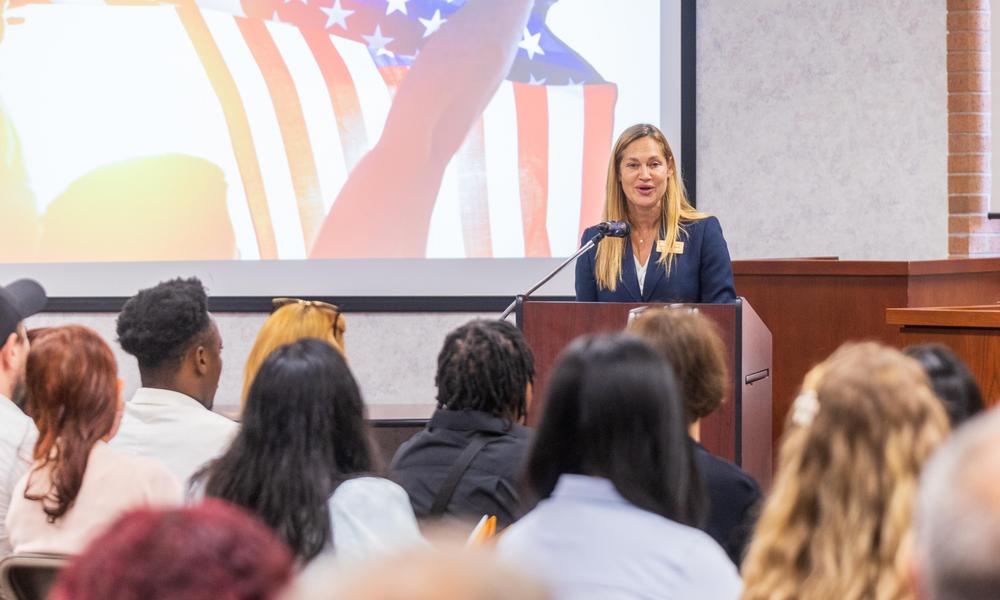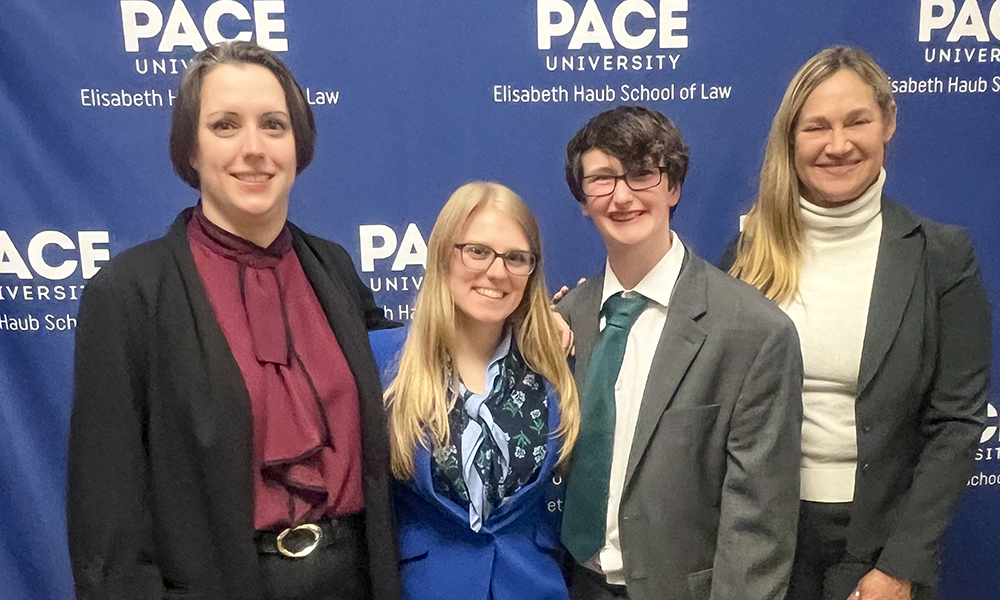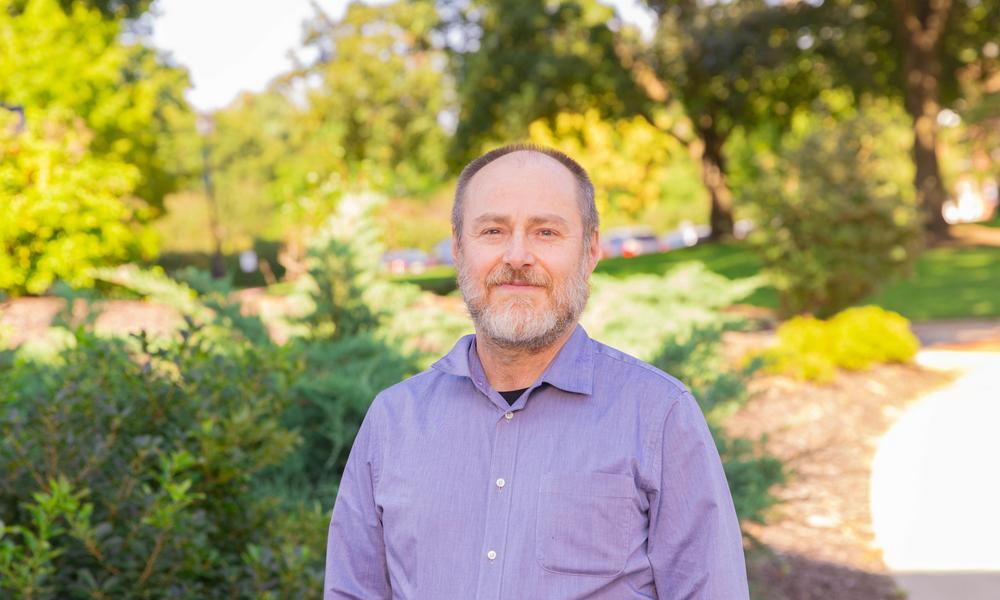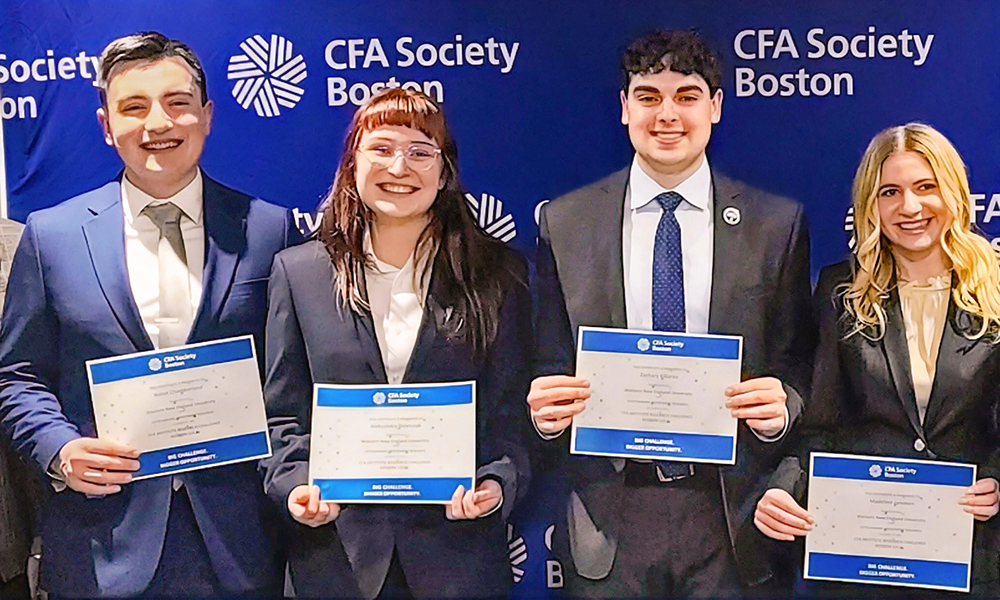With voter turnout in Springfield and Holyoke among the lowest in Massachusetts, Western New England University (WNE) School of Law is taking action through its 2024 Participatory Democracy campaign, spearheaded by Professor Julie E. Steiner, Director of the Law school's Institute for Legislative and Governmental Affairs (ILGA). This initiative is focused on educating and empowering local residents to exercise their voting rights and overcome barriers to participation ahead of the upcoming election.
The Participatory Democracy campaign at WNE launched this fall and includes a series of workshops and trainings aimed at equipping voters with essential knowledge about their rights at the polls. One notable event, the “Know Your Voting Rights” workshop, drew a large crowd to the law school, where Professor Steiner emphasized the importance of self-advocacy at polling stations. She highlighted legal protections for voters, explaining that citizens, at least in Massachusetts and with few exceptions, have the right to vote, regardless of language barriers, disabilities, or past criminal records.
“Voters need to know that they have the power to stand up for themselves,” Steiner said during the event. She also underscored that even if a voter's name is not on the registered list at a polling location, they can take steps to ensure their vote is counted, including requesting a provisional ballot.
The Participatory Democracy campaign aims to address systemic issues that discourage voter participation. Steiner points to structural barriers, such as the state's 10-day voter registration deadline, as hurdles that disproportionately affect underrepresented communities. The ILGA's workshops not only educate voters on their rights but also provide practical guidance on how to navigate the electoral system and ensure their voice is heard.
In collaboration with local grassroots organizations, the Participatory Democracy campaign has extended beyond the classroom. Law students and volunteers are canvassing in low-turnout neighborhoods, providing information about voting procedures, ballot questions, and how to access resources like rides to polling places. “This is about more than just getting people to vote,” Steiner explained. “It’s about creating a more engaged, informed electorate that feels empowered to participate in our democracy.”
The campaign has also raised awareness about disparities in the voter registration process. Wards in Springfield with lower median incomes have a higher percentage of residents listed as "inactive voters," a designation that can make it more difficult for them to cast a ballot. Steiner and her team have been working with community groups to address this issue, offering guidance on how to re-activate voter status and educating voters on their rights to challenge any roadblocks at polling stations.
As the election approaches, WNE School of Law’s Participatory Democracy campaign is determined to make a difference by fostering civic engagement, particularly in underserved communities. Steiner’s leadership in voter education and advocacy is helping to close the gap in voter turnout and ensure that more voices are heard in this year’s election.
Adapted from Masslive, October 20, 2024





